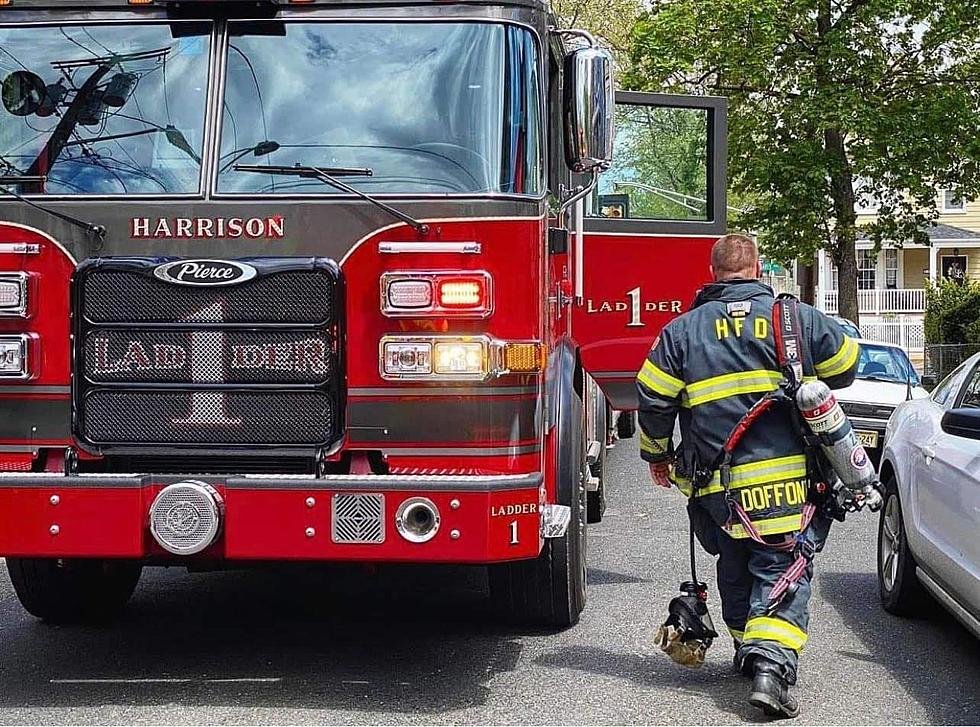As a young boy, I was fascinated by the bravery and camaraderie of firefighters. Their sirens pierced through the neighborhood, summoning them to rescue the distressed and extinguish raging infernos. It was in those moments that I realized my calling as a firefighter in New Jersey.

Image: nj1015.com
Aspiring to Excellence: Discovering the Qualifications
To embark on this noble path, it’s crucial to meet the rigorous qualifications set forth by the New Jersey Civil Service Commission. Aspiring firefighters must be at least 18 years of age, possess a valid high school diploma or equivalency, and hold a valid driver’s license with a clean driving record. Additionally, physical fitness is paramount, with candidates required to pass a rigorous physical agility test administered by the New Jersey Firefighters’ Mutual Benevolent Association.
Unveiling the Application Process: A Step-by-Step Guide
The application process for becoming a firefighter in New Jersey is meticulously structured to ensure the selection of the most qualified candidates. Upon meeting the basic qualifications, aspirants must register with the New Jersey Civil Service Commission. Once the registration window opens, candidates can apply for the firefighter I examination. Those who score in the top ranks will be invited to participate in the Candidate Physical Ability Test (CPAT) and the agility test.
Fitness and Agility: Passing the Physical Tests
The CPAT evaluates candidates’ physical capabilities, including strength, agility, and endurance. Candidates must navigate a series of demanding exercises designed to simulate the rigors of firefighting, such as climbing a ladder, hoisting a hose, and performing forcible entry.

Image: www.njhiit.com
The Oral Interview: Articulating Your Passion and Commitment
After passing the physical tests, the highest-scoring candidates proceed to the oral interview stage. The interview panel will assess candidates’ knowledge of firefighting principles, their motivation for pursuing a career in firefighting, and their commitment to serving their community. A panel of experienced firefighters and supervisors will evaluate the candidates’ responses.
Firefighting in New Jersey: A History of Excellence
The firefighting tradition in New Jersey dates back to the 18th century, with fire departments initially established by volunteers dedicated to protecting their towns and cities from the devastating effects of fires. Over the years, firefighting has evolved from a volunteer-based activity to a highly specialized profession, with消防員undergoing rigorous training and adhering to stringent standards.
Community Service: Making a Difference in the Heart of New Jersey
Firefighters in New Jersey play a vital role in their communities, extending beyond firefighting duties to include public education and emergency response. They work closely with schools, businesses, and residents to promote fire safety and minimize the risk of fire-related incidents. Additionally, firefighters are often among the first responders during natural disasters and other emergencies, providing essential assistance.
Keeping Abreast of Advancements: Innovations in Firefighting
The firefighting profession is constantly evolving, with new technologies and techniques emerging to enhance the safety and effectiveness of firefighters. New Jersey firefighters are embracing these advancements, incorporating thermal imaging cameras, advanced firefighting apparatus, and innovative rescue equipment into their operations. These technological strides allow 消防員to locate victims more quickly, extinguish fires more efficiently, and save lives.
Expert Advice: A Blueprint for Success
As a seasoned firefighter, I have witnessed the transformative power of training and experience. Aspiring firefighters can benefit immensely by following these expert tips:
- Stay informed: Keep up-to-date with current firefighting techniques and innovations through industry publications, online resources, and conferences.
- Practice fitness: Engage in regular exercise routines that focus on strength, agility, and endurance. The firefighter’s physical demands require a heightened level of fitness.
- Develop teamwork skills: Firefighting is a team effort. Cultivate your ability to work effectively with others, communicate clearly, and trust your fellow firefighters.
- Immerse yourself in firefighting: Volunteer with a local fire department to gain hands-on experience. This invaluable exposure will provide you with a deeper understanding of the profession.
Frequently Asked Questions: Unraveling the Path to Firefighting
Q: What are the educational requirements to become a firefighter in New Jersey?
A: A high school diploma or equivalency is required.
Q: How do I apply to become a firefighter in New Jersey?
A: Register with the New Jersey Civil Service Commission and apply for the firefighter I examination.
Q: What is the physical agility test required for firefighters in New Jersey?
A: The Candidate Physical Ability Test (CPAT) evaluates strength, agility, and endurance.
Q: How can I improve my chances of becoming a firefighter in New Jersey?
A: Stay informed, practice fitness, develop teamwork skills, and immerse yourself in firefighting.
How To Become A Firefighter Nj
Embark on a Journey of Service: Ignite Your Firefighting Dream
Becoming a firefighter in New Jersey is a noble undertaking that demands unwavering commitment, rigorous training, and an unyielding passion for serving others. If you possess these attributes, I urge you to embark on this transformative journey. The rewards are immeasurable – the camaraderie, the sense of purpose, and the opportunity to make a tangible difference in your community.
Are you ready to ignite your firefighting dream?